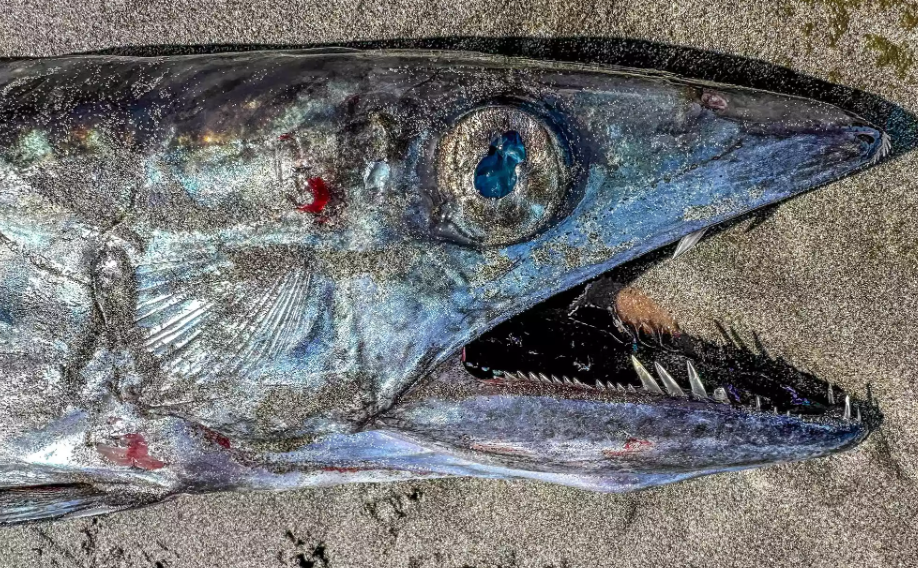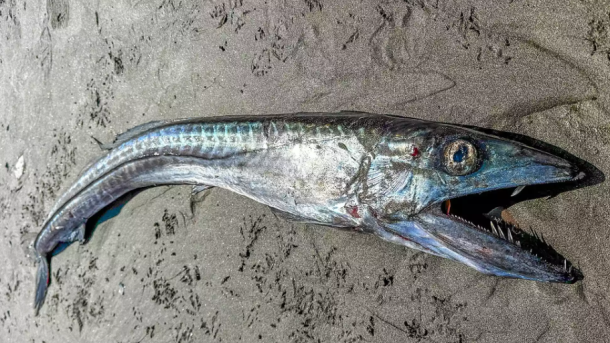A Longnose Lancetfish, a rarely seen deep-sea predator known for its eerie looks and cannibalistic diet, was recently discovered far from its usual habitat!
On April 22, a visitor at Seaside Aquarium in Oregon showed assistant manager Tiffany Boothe photos of an unusual fish that had drifted onto the beach. Recognizing it immediately as a Longnose Lancetfish, Boothe, a self-proclaimed “fish nerd,” hurried to the scene. These deep-water creatures, often compared to barracudas, seldom appear in Oregon, and finding a whole specimen is even rarer.
“When he showed us the photo, the fish was in such pristine condition, we rushed to retrieve it,” Boothe told USA Today. Typically, Seaside Aquarium encounters only a handful of these deep-sea fish each year. However, due to their delicate, gelatinous flesh, seagulls usually pick them apart quickly, making intact specimens hard to come by. Plus, their menacing appearance tends to unsettle beachgoers.
“It doesn’t look like a fish you’d want to touch,” Boothe said.

Longnose Lancetfish: A Deep-Sea Mystery
Seaside Aquarium staff collected the nearly five-foot-long creature (around 145 centimeters) and examined it, emptying its stomach before sharing their findings on Facebook. The Longnose Lancetfish is a species rarely expected along the Oregon coastline. It stands out with its large, glassy eyes, sharp teeth, and snake-like body — features uncommon among Pacific Northwest marine life.
Little information exists about the Longnose Lancetfish, but it’s known to inhabit waters from the southern Bering Sea to Chile, ranging from surface levels down to 6,000 feet. Their diet is as fearsome as their look: they consume over 90 different species, including each other, and are unfortunately drawn to plastic debris. Scientists often study their stomachs because the fish digest their prey so poorly that entire fish and squids are often found inside them.
Photos posted by the aquarium even displayed some of the stomach contents — from whole squids and fish to octopus parts and squid beaks.

Longnose Lancetfish: Cannibalistic and Elusive
Despite encountering a few each year, the aquarium has never successfully kept a Longnose Lancetfish alive for more than an hour. However, one of the first specimens they found back in the 1990s was preserved through taxidermy and remains on display.
Because of its aggressive and indiscriminate feeding habits, the Longnose Lancetfish is often nicknamed the “cannibal fish” or “twilight zone fish” — the latter referring to its deep-sea hunting grounds in the mesopelagic “twilight zone,” a mysterious, dimly lit layer of the ocean.
Source: www.people.com



